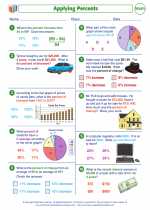Applications of percent -> distributive property
Distributive Property
The distributive property is a fundamental concept in mathematics that allows us to simplify and solve expressions involving multiplication and addition. It states that for any real numbers a, b, and c:
a * (b + c) = a * b + a * c
In other words, when a number is multiplied by the sum of two other numbers, it is the same as the sum of the products of the number and each of the other two numbers individually.
Examples:
Let's look at a few examples to understand the distributive property better:
Example 1:
Simplify the expression 3 * (2 + 4).
Using the distributive property, we have:
3 * (2 + 4) = 3 * 2 + 3 * 4 = 6 + 12 = 18
So, 3 * (2 + 4) simplifies to 18.
Example 2:
Simplify the expression 5 * (x + 3).
Using the distributive property, we have:
5 * (x + 3) = 5x + 5 * 3 = 5x + 15
So, 5 * (x + 3) simplifies to 5x + 15.
Study Guide:
To master the distributive property, here are some key points to remember and practice:
- Understand the concept: The distributive property shows the relationship between multiplication and addition. It helps in breaking down complex expressions into simpler forms.
- Practice problems: Work on various exercises involving the distributive property to reinforce your understanding. Start with simple numerical expressions and then move on to algebraic expressions.
- Combine like terms: After applying the distributive property, always look for like terms to combine and simplify the expression further.
- Apply to real-life situations: Understand how the distributive property can be applied in real-world scenarios, such as distributing items into groups or calculating costs.
By mastering the distributive property, you'll gain a strong foundation in algebra and problem-solving skills that are essential for higher-level mathematics.
Keep practicing and exploring different types of problems to become proficient in applying the distributive property effectively.
Happy learning!
.◂Math Worksheets and Study Guides Eighth Grade. Applications of percent
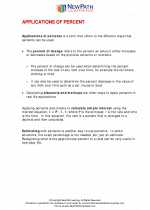
 Worksheet/Answer key
Worksheet/Answer key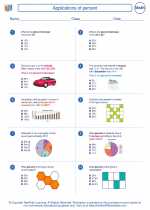
 Worksheet/Answer key
Worksheet/Answer key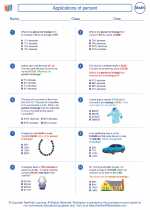
 Worksheet/Answer key
Worksheet/Answer key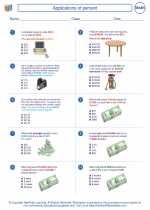
 Worksheet/Answer key
Worksheet/Answer key